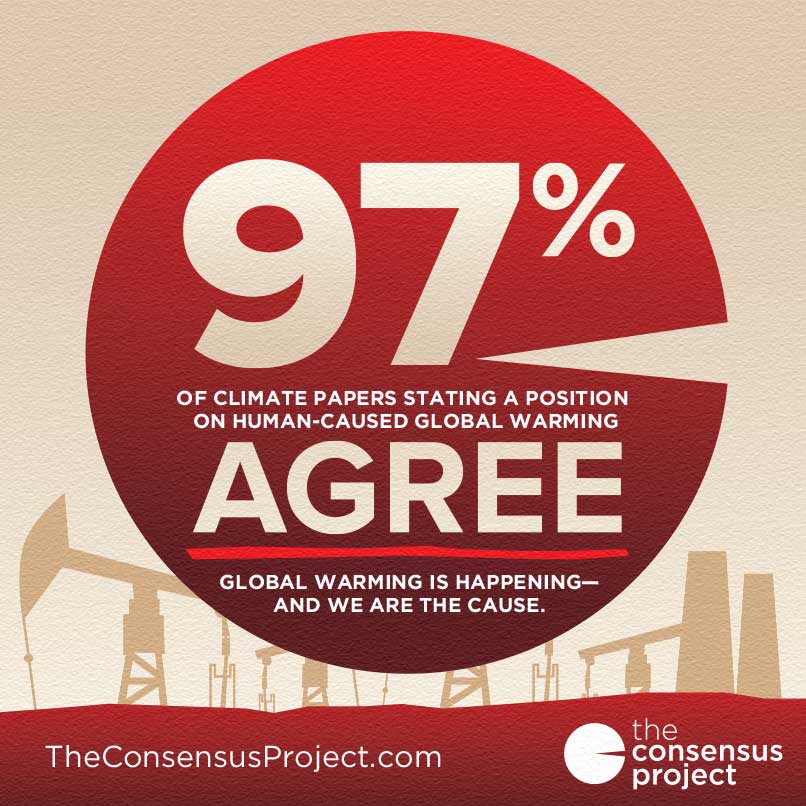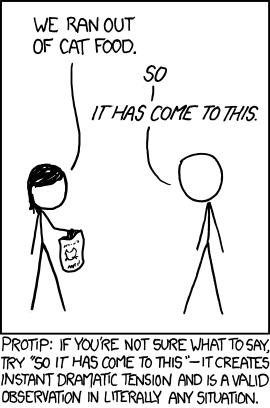Doubling down:
The clear message of the team conducting this fresh assessment of the
climate science consensus is that it’s vital to close that gap to have a
chance of breaking societal deadlock on cutting greenhouse gas
emissions. On his Skeptical Science blog, John Cook, the paper’s lead author, put it this way:
Quite possibly the most important thing to communicate
about climate change is that there is a 97% consensus amongst the
scientific experts and scientific research that humans are causing
global warming. Let’s spread the word and close the consensus gap.
Forgotten [Really? Did they say climate communication was the only thing that mattered? No, they said "to have a chance." I.e., closing the gap is necessary but not sufficient condition, not the only thing that matters] in much of this is a point made in an e-mail message sent to me and some other science communicators this morning by Dan Kahan, the Yale law professor who studies the cultural filters that influence how people perceive and react to information. Kahan linked to his fresh post reviewing how many times in recent years such studies have been promoted, then asked this:
Climate scientists aren’t the only ones whose message
never gets through. The “science of science communication consensus”
that deficits in knowledge & rationality are not the problem [there's more than one problem!]—
99.9999999% agree! — never does either, & to the very people it
should be of value too, viz., those trying to promote constructive
engagement w/ climate science.
Is there someone studying that science communication problem???!
. . .
This doesn’t mean it’s a waste of time to communicate climate
science [in contrast to what you tweeted yesterday]. But it does mean that communicating the science of science
communication matters, too.
For more on the wishful nature of hopes that closing such gaps will matter much, read Keith Kloor and David Appell.
Dear Andrew,
I like a lot of what you write, and I respect your ability to take a second look at your positions and well, it's time. Your own shifting justifications for why Cook et al doesn't matter should be a warning sign that something is amiss: "This study will not fundamentally alter the climate debate forever" (*) is quite a climb-down from "This is an irrelevant study that tells us nothing new and changes nothing."
The Cook study added a greater degree of rigor to the evidence that 97% of climate scientists agree global warming is happening and is human caused. Most Americans --
70% in the 2011 Six Americas study -- do not know this. Attempting to defend the initial, rather rude and ill-thought-out, dismissal of the study reflects a natural and predictable defensiveness, but you should reconsider.
Neither the authors of the study nor anyone else claimed the study solved all the problems in communicating the science of global warming, still less that it showed a way past all the obstacles to collective political action.
But as a piece of science communication -- a subject you have written and lectured about on many occasions, and therefore seem to think is relevant in some way to the challenges we face -- it was a stunning success(**). Both your initial dismissal and the further attempts to justify it are wrongheaded and invite the label of "inactivist" which some have attached to you.
-----------------------------
* A point Appell makes in even more bizarre fashion when he crows ("
Climate Candy: The Proof" (!)) that the Huffington Post is no longer leading with the study the next day (?)).
** Let us consider some of the reasons for its success:
1. A simple message.
2. Careful research that sticks to the facts.
3. A message grounded in what we know well, not in new science, extremes, or "single study syndrome."
4. Information that the disengaged (not aware it has been available for some time) have REPEATEDLY TOLD POLLSTERS would increase their concern about global warming.
5. Despite a message well-gauged to increased concern, it is not apocolyptic, not overwhelming, and not likely to make people want to "tune out" the issue.




